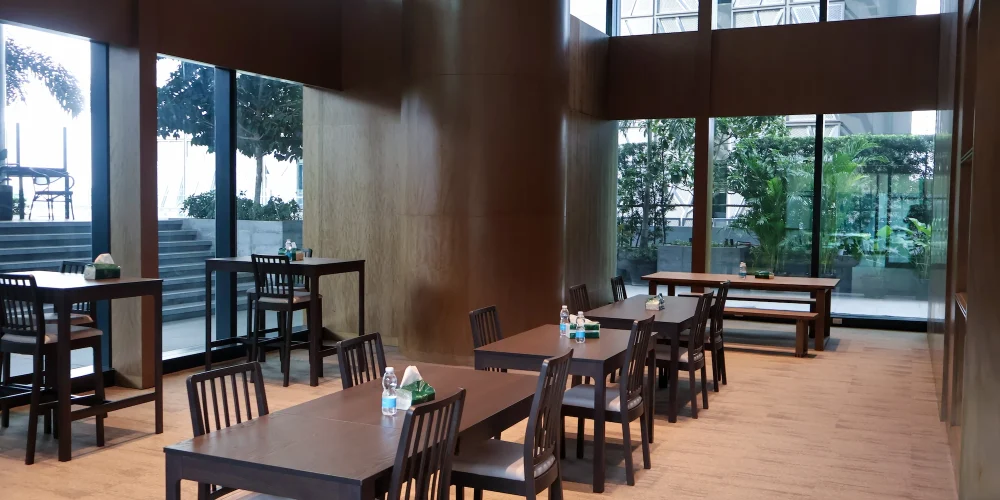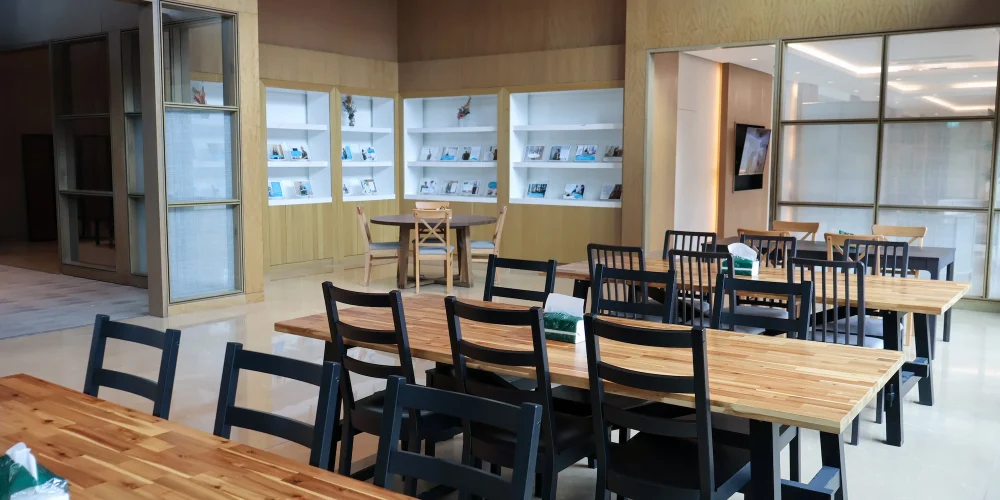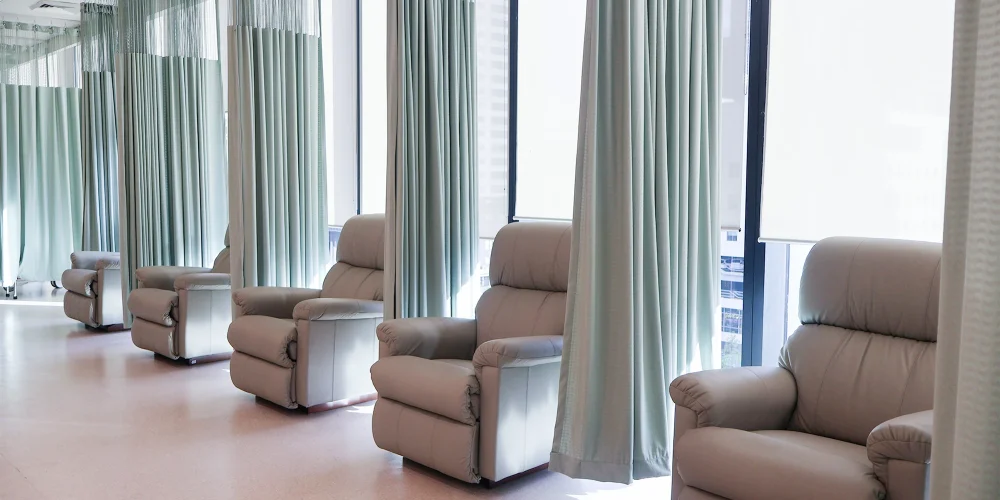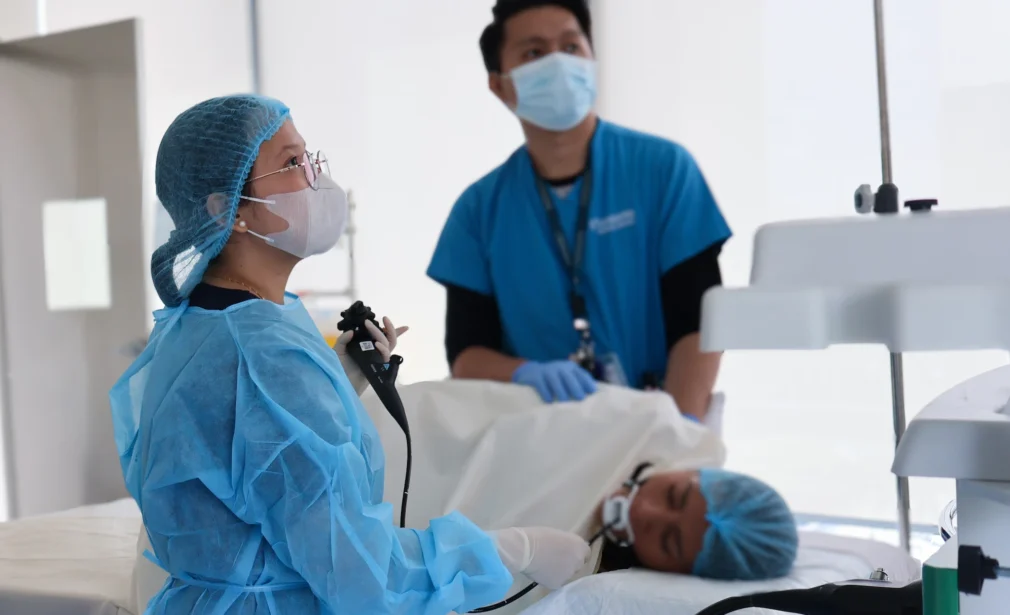This procedure examines the upper gastrointestinal tract (esophagus, stomach, and proximal duodenum) for obstructions, polyps, ulcers, or masses. To set your expectations, patients undergoing endoscopy will receive intravenous anesthesia for sedation, ensuring a stress-free and painless experience. Due to the effects of the anesthetic, a brief recovery period is required to ensure the patient’s well-being. However, it is strongly advised to avoid driving or engaging in strenuous activities immediately after the procedure.
Testing + Recovery Time: 80 Minutes
Recommended for
Patients aged 40 and above.
Those experiencing persistent acid reflux, heartburn, or symptoms of GERD.
Patients with frequent nausea, vomiting, bloating, or unexplained stomach pain.
Those with a family history of stomach cancer or other gastrointestinal diseases.
Benefits
Performed through the mouth with sedation to minimize discomfort.
Allows early detection and diagnosis of gastrointestinal conditions, including ulcers, inflammation, infections, and tumors.
Enables immediate treatment for certain conditions, such as removing polyps or stopping active bleeding.
More accurate than X-rays or other imaging tests for diagnosing upper gastrointestinal diseases.
Provides clear imaging of the upper digestive system, including the esophagus, stomach, and small intestine.
Testing + Recovery Time: 80 Minutes
Recommended for
Patients aged 40 and above.
Those experiencing persistent acid reflux, heartburn, or symptoms of GERD.
Patients with frequent nausea, vomiting, bloating, or unexplained stomach pain.
Those with a family history of stomach cancer or other gastrointestinal diseases.
Benefits
Performed through the mouth with sedation to minimize discomfort.
Allows early detection and diagnosis of gastrointestinal conditions, including ulcers, inflammation, infections, and tumors.
Enables immediate treatment for certain conditions, such as removing polyps or stopping active bleeding.
More accurate than X-rays or other imaging tests for diagnosing upper gastrointestinal diseases.
Provides clear imaging of the upper digestive system, including the esophagus, stomach, and small intestine.
Other Inclusions




Amenities and Comfort
Since a companion is required to accompany you after the procedure, they can unwind in our lounges, enjoy the serene view, access free Wi-Fi, and stay productive or entertained while they wait.

Recovery Room
After your gastroscopy procedure, relax in our exclusive recovery room, designed for your comfort and well-being. Here, our medical team will ensure you are fully recovered and ready to go before leaving our clinic.
Book an appointment now

01
Inquire
Have questions? Contact us through live chat or reach us via Smart at (+63) 962-067-3669, Globe at (+63) 917-864-6762, or Landline at (+632) 7368-5241.

02
Book

03
Confirm
Our Patient Care Line agents will contact you via call and email to confirm your appointment date and time, along with important reminders for your visit.
Frequently asked questions
Gastroscopy is generally well-tolerated and less uncomfortable compared to traditional endoscopy procedures.
The examination typically lasts for about 30 minutes.
Patients aged 40 and above, seeking to screen for digestive health, and need detailed gastric examination
Pediatric patients are not recommended to undergo the executive package. For patients 40 years old and below, a Doctor’s request will be required, depending on the patient’s health condition.
The preparation include fasting for 6-8 hours before the procedure and securing CP Clearance.
Note that all patients aged 35 and above should undergo CP Clearance.
Note that all patients aged 35 and above should undergo CP Clearance.
The results will be released on the same day.

